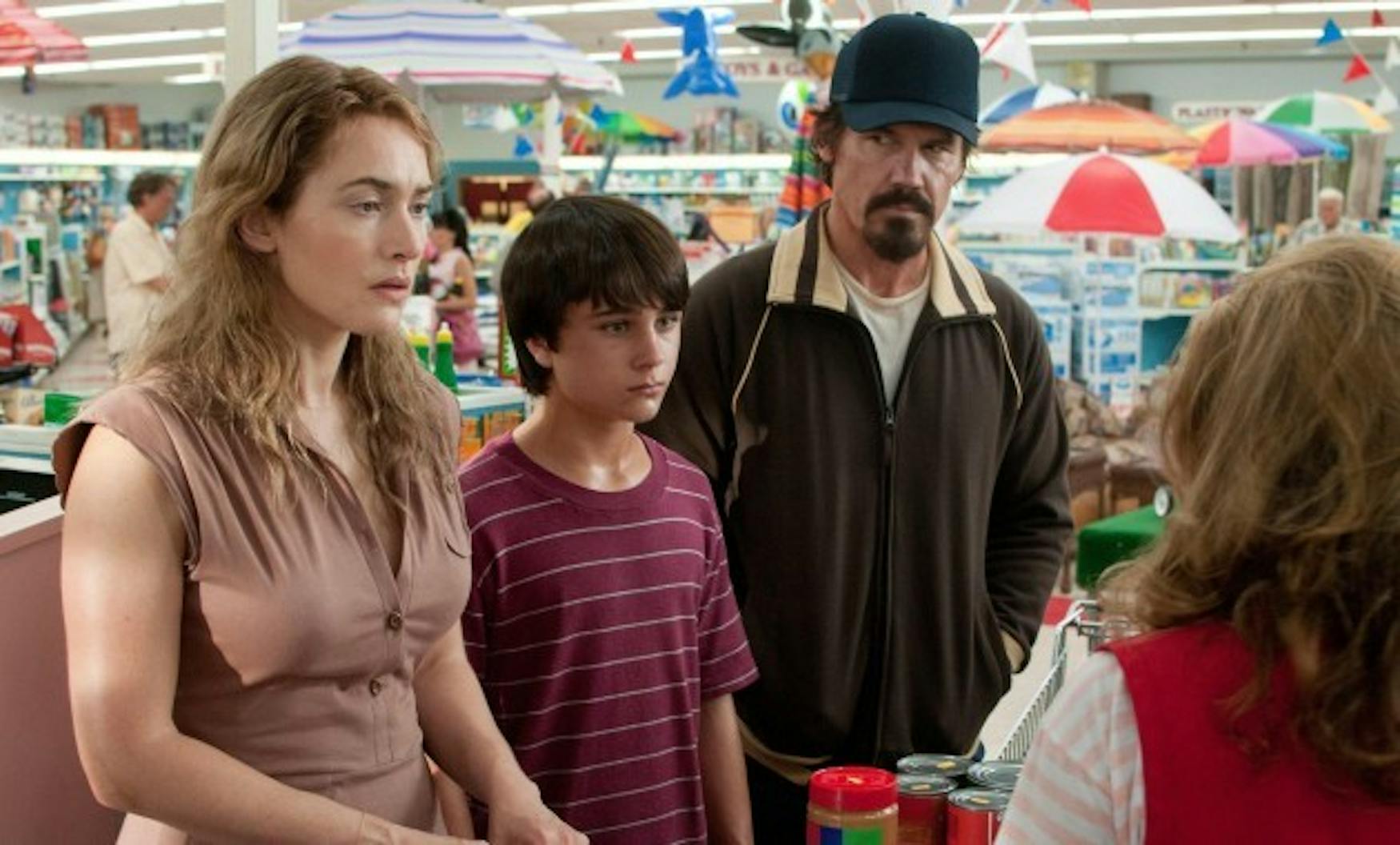Film challenges traditional love stories
Losing love and the subsequent fear of spending life alone are devastating. The new film Labor Day, based on the 2009 novel of the same name by Joyce Maynard, brilliantly captures the downfalls and joys of love through the lens of grieving mother Adele (Kate Winslet) and her 13-year-old son Henry (Gattlin Griffith), who encounter escaped convict Frank (Josh Brolin). The film was originally released at the Telluride Film Festival last August in the noteworthy first feature slot, following in the footsteps of other successful films such as last year's Argo. Directed by Jason Reitman, Labor Day marks an interesting progression of Reitman's work after his hit films Thank You for Smoking, Up in the Air and Juno.
Labor Day, set in the summer of 1987, opens with a detailed portrait into the lives of Adele and Henry, who live a quiet life after her divorce from Henry's father Gerald (Clark Gregg). Adele suffers from depression, struggling to leave the house to run errands, and her hands consistently shake in moments of anxiety. Henry, who retrospectively narrates the film, is incredibly attentive and caring toward his mother. He explains that he sees how much she's suffered from losing love itself and attempts to fill that void; for example, he makes her breakfast in bed and gives her a book of handmade coupons for assorted chores and favors. Their relationship is one of the most remarkable aspects of the film, both in the emotional connection and also as the actors develop a different type of parent-child relationship.
In a rare trip to the store, Henry meets Frank, who just escaped from prison while having minor surgery. Bleeding through his stark white T-shirt, Frank forces Adele to take him back to their house, but the film doesn't follow the typical hostage situation-Frank and Adele develop a dynamic and tender relationship that manages to overshadow any negativity in the film.
Though the premise of falling in love with your captor is a bit unusual, Reitman creates a love story that transforms two broken individuals. The film revolves around the progression of Adele and Frank's relationship, as well as their relationship with Henry. Over the course of the long Labor Day weekend, the film uses flashbacks, details and powerful emotional ties to progress the plot.
The beauty of Labor Day is in its many silent moments that truly encapsulate the theme and events of the film. In one scene, Frank silently ties Adele to a chair (in case she is forced to testify to the police) and then feeds her dinner that he made. The moving silence perfectly contrasts with the underlying tension in the scene. Another memorable silent moment was one of the first tender scnes between Adele and Frank-sitting on the steps while Henry plays a few feet away. The film proves that family is not a rigid entity, but a fluid self-created structure. The flashbacks to Frank's past, including the crime he committed, also occur in silence with the emphasis entirely on his story.
Griffith, who has appeared in several television shows and films, conveyed a deep sense of maturity and depth as the young boy. His wide, expressive eyes captivated each scene he was in and he developed an excellent rapport with his costars. Toward the middle of the film, Henry meets Eleanor (Brighid Fleming), a girl his age who just moved to town after dealing with her own family issues. The two display an innocent yet intense relationship, both wise beyond their years after dealing with many challenges in life. The two young actors have a lot of potential for their future years and are perfectly cast in Labor Day.
Winslet is also an ideal choice for the melancholic role of Adele-both her body language and eyes convey her deep pain in her performance. Winslet also does an excellent job transforming her character from forlorn to engulfed by love. Brolin expertly mixes a rugged exterior with complex inner emotions and a challenging past.
Aside from the acting, the cinematography and musical score are also outstanding. Set in New Hampshire, the scenery is exquisite and is accompanied by sharp eye for detail, from items around their house to the local grocery store. The film feels immensely real and tangible because of this. As for the score, the music plays a critical element in the key moments of the film and I found myself hypnotized.
Though Labor Day has received negative reviews from many critics and the plot is a bit far-fetched, Reitman-who also wrote the screenplay-directed a dynamic and engaging film that I thoroughly enjoyed. Plus, Clark Gregg-the amazing Phil Coulson from The Avengers movies-makes a great appearance as Gerald, Adele's ex-husband.



Please note All comments are eligible for publication in The Justice.